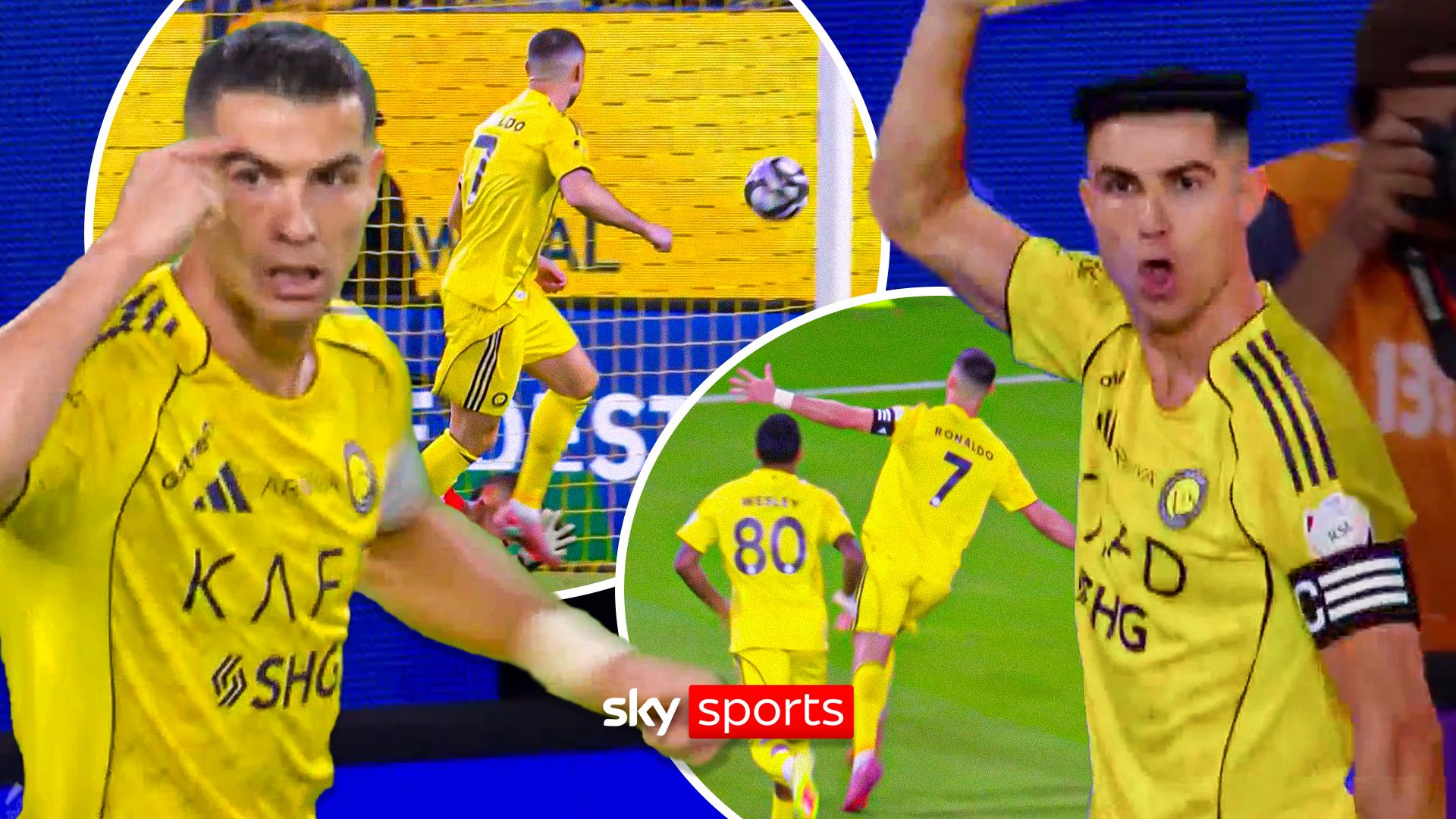Ronaldo’s Late Heroics for Al Nassr: A Modern-Day David vs. Goliath Saga in the Saudi Pro League’s Power Struggle!
Cristiano Ronaldo’s recent performance for Al Nassr, where he scored twice including a dramatic 90+15 winner, has not only propelled his team to the top of the Saudi Pro League but has also ignited a fierce debate about the implications of his presence in the league and the broader context of football’s evolving landscape.
Ronaldo, a name synonymous with football greatness, has long been a polarizing figure in the sport. His move to Al Nassr, a club that has historically been overshadowed by European giants, represents a significant shift in the footballing world. The Saudi Pro League, often viewed as a lesser competition compared to the likes of the English Premier League or La Liga, is now thrust into the spotlight, thanks in large part to Ronaldo’s star power. This has led to a complex discussion about the commercialization of football, the ethics of player transfers, and the impact of foreign investments in domestic leagues.
The Saudi Pro League has been making headlines for its aggressive recruitment strategy, aiming to attract top talent from around the globe. This influx of high-profile players raises questions about the integrity of competition and the potential for a new footballing hierarchy. Critics argue that the dominance of teams like Al Nassr, bolstered by players like Ronaldo, could lead to a lack of competitiveness within the league, mirroring concerns seen in other leagues where financial power dictates success.
Ronaldo’s late-game heroics, particularly his knack for scoring crucial goals in the dying moments of matches, have drawn comparisons to legendary figures in sports history who have risen to the occasion against all odds. This narrative of the underdog, represented by Al Nassr’s rise, resonates deeply in a world where the balance of power is constantly shifting. The club’s ascent to the top of the league, fueled by Ronaldo’s contributions, can be seen as a modern-day David vs. Goliath story, where the little-known team challenges the established order.
However, this romanticized view of Al Nassr’s journey is complicated by the realities of financial disparity in football. The club’s ability to attract Ronaldo and other high-profile players is a testament to the vast resources available in Saudi Arabia, raising ethical questions about the source of this wealth and its implications for the sport. The narrative of sporting meritocracy is challenged when financial clout becomes the primary driver of success, leading to a potential erosion of the competitive spirit that has traditionally defined football.
Moreover, Ronaldo’s influence extends beyond the pitch. His presence in the Saudi Pro League has sparked discussions about the globalization of football and the cultural exchanges that come with it. As players from diverse backgrounds converge in leagues like the Saudi Pro League, the sport becomes a melting pot of styles, philosophies, and fan bases. This cultural intersection can enrich the game, but it also risks diluting local identities and traditions that have long been integral to football’s appeal.
The implications of Ronaldo’s performances are not limited to the immediate context of the Saudi Pro League. His success in this league could set a precedent for other players considering moves to less traditional football markets. The allure of lucrative contracts and the chance to play alongside or against global icons may entice more talent to explore opportunities in emerging leagues. This trend could further shift the balance of power in football, challenging the dominance of established European leagues and creating a more fragmented landscape.
As Al Nassr continues its pursuit of glory with Ronaldo leading the charge, the footballing world watches closely. The narrative surrounding his late-game heroics and the club’s rise to prominence is emblematic of broader themes in sports today: the intersection of wealth and competition, the globalization of talent, and the ongoing struggle for identity in a rapidly changing world. The outcome of this saga will not only shape the future of the Saudi Pro League but could also redefine the very essence of football as we know it.




